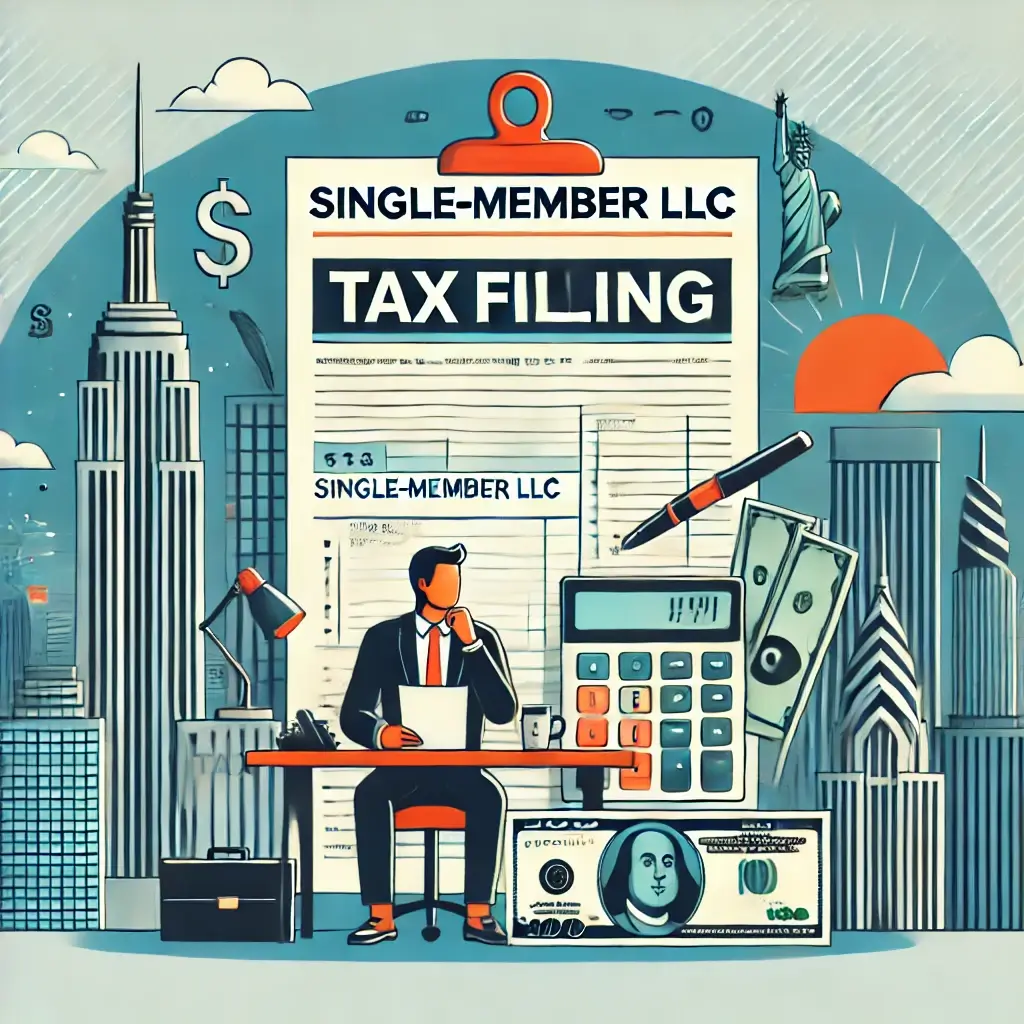Learn how to navigate tax filing and refunds for your single-member LLC in New York State with our comprehensive guide. Simplify federal and state tax processes, understand key requirements, and discover practical tips for successful tax management.
Operating a single-member LLC involves essential tax filing and refund processes, which can feel quite complex for new owners. Particularly in New York State, the tax system and procedures can be challenging. This guide simplifies the tax filing and refund process for single-member LLC owners in New York and provides practical tips to help manage your taxes successfully.
Understanding the Tax Structure of Single-Member LLCs in New York

In New York, a single-member LLC is typically treated as a “disregarded entity”. This means that the LLC’s income and expenses are not taxed at the corporate level but are instead reported on the owner’s personal income tax return. Therefore, single-member LLC owners must report their business income on their personal tax returns. Here are the key aspects of federal and state tax filing.
Federal Tax Filing Process
As a single-member LLC owner, federal tax filing is done in conjunction with your personal tax return. This process involves the following steps:
Reporting Income and Losses Using Schedule C
The IRS requires single-member LLCs to report their income and losses using Schedule C of Form 1040. This form is used to report the income, expenses, and net profit from your business operations. This information is used to calculate both federal income tax and self-employment tax.
Filing Self-Employment Tax
Self-employment tax consists of Social Security and Medicare taxes. Single-member LLC owners must report self-employment tax on their business income using Schedule SE. This ensures that you receive Social Security benefits similar to those of an employee.
New York State Tax Filing Process
New York has its own tax system, and LLC owners must adhere to the following key requirements.
Filing Personal Income Tax and Annual LLC Report
In New York, single-member LLC owners must report income using Form IT-201 (Resident Income Tax Return) or Form IT-203 (Nonresident and Part-Year Resident Income Tax Return), depending on their residency status. Additionally, New York State requires an annual LLC filing fee based on the LLC’s gross income, so be sure not to miss this requirement.
Annual LLC Filing Fee
The annual LLC fee varies based on the company’s gross income, typically ranging from $25 to $4,500. Failing to pay this fee on time can result in penalties, so it is important to make sure it is paid before the due date.
Importance of Estimated Tax Payments
Quarterly Estimated Tax Payments
Single-member LLC owners may need to make quarterly estimated tax payments to reduce their annual tax burden. If you expect to owe at least $1,000 in taxes for the year, quarterly payments are mandatory. This helps prevent unexpected tax liabilities and fosters good tax management habits.

How to Claim a Refund
If you overpay your taxes, you may be eligible for a refund. To ensure a smooth refund process, keep in mind a few basic steps.
Requesting a Tax Refund
If you have overpaid your taxes, you can request a refund on your tax return. Opting for direct deposit of the refund into your bank account will speed up the process. Be sure to provide accurate routing and account numbers, and check the status of your refund using the IRS’s “Where’s My Refund?” tool.
Checking New York State Refund Status
For New York State refunds, you can check the status on the New York State Department of Taxation and Finance website. To avoid delays, make sure all documents are accurately completed and submitted.
Tips for Efficient Tax Filing
Maintain Thorough Records
Effective tax filing requires thorough record-keeping. Keep records of income, expenses, receipts, and all other business-related documents for at least three years. These documents are crucial in case of an audit or for refund purposes.
Seek Professional Assistance
If you are new to tax filing and refund procedures for LLCs in New York, it is advisable to seek help from a tax professional. A tax expert can provide insights based on a deep understanding of tax laws, making the process more efficient and suggesting ways to minimize your tax burden.



